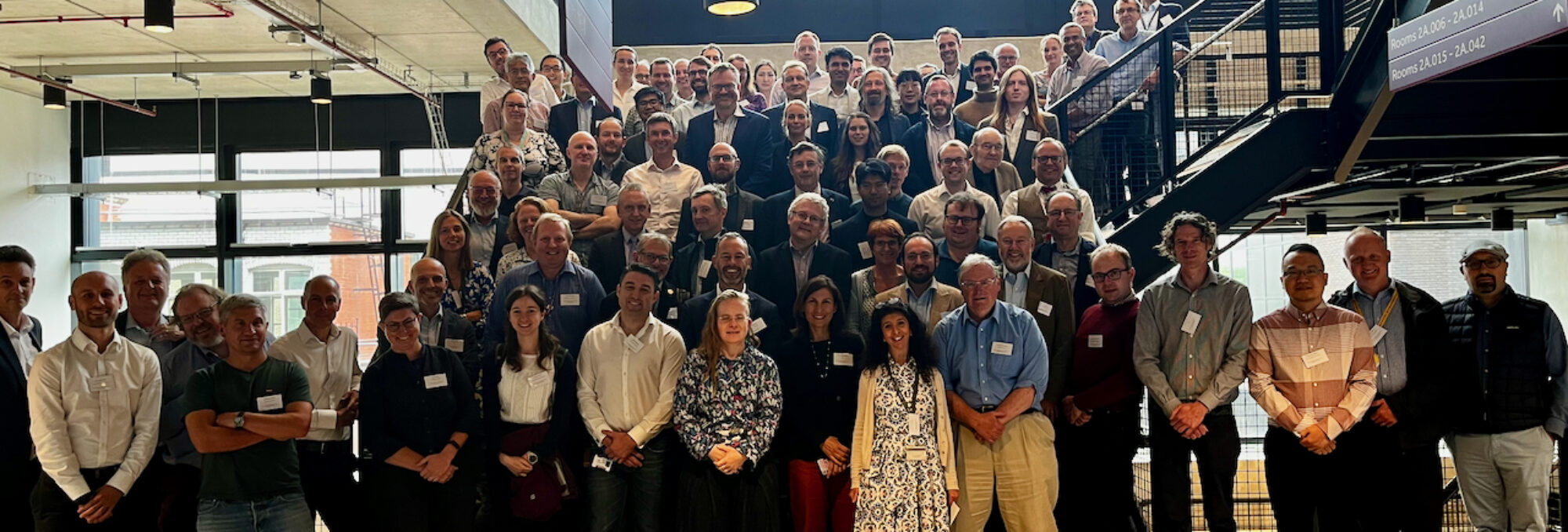1. The development of accident tolerant, proliferation resistant, and waste minimal & minimalising fuels for Gen III/IV reactors
Drivers
- Government policy to ‘burn’ Pu requires development of appropriate Pu fuel variants and associated technology
- Gen IV reactor system options will be influenced by the fuel options available; drive will be towards accident tolerant and proliferation resistant, whilst coupled with sustainable use of resource (influenced by reuse and reprocessing)
- Development of Gen IV fuel variants is likely to provide insight into Gen II/III fuels, thus providing the opportunity to develop more robust and economic fuels for existing reactor systems
- R&D in this area will help sustain and potentially grow an existing knowledge base
- Technological developments could provide a major export opportunity
Resources Available
- Urania based fuel manufacturing capabilities
- Current strong post irradiation examination experience
- Access to comparative databases
- Fuel performance modelling capabilities
- Access to Halden programmes
Resources Required
- Improved and expanded non-active/U/transuranic active facilities at universities to investigate scale up of fuel cycle technology
- NNL Central Laboratory Phase 2 (pellet production line to allow production of exotic variants e.g. containing Pu/nitride/Th/minor actinide bearing fuels etc)
- Access to irradiation facility (Material Test Reactor)
- NNL Central Laboratory Phase 3 (to support post irradiation examinations)
- Sustainable technical resource base (sufficient graduates, PhDs, plus succession management of current post irradiation examination workforce)
- Senior academic appointments to support and direct university based studies
2. The development of sustainable and proliferation resistant closed fuel cycle options through provision of advanced spent fuel reprocessing technologies
Drivers
- Maintains and develops existing capability in reprocessing to assist future policy/strategy options
- Definition of the optimum process/technology will assist Government in the selection of fuel cycle option, and define the associated overarching economics. This includes informing requirements for the Geological Disposal Facility (GDF), and therefore needs to be addressed now
- Use current reprocessing expertise to appropriately inform debate whilst it is still available (likely to decline steeply following the closure of THORP and metal fuel reprocessing)
- Current reprocessing technologies present efficiency and proliferation resistance improvement opportunities and are not compatible for some fuels
- Definition of the optimum process/technology will assist in the identification of the likely advanced fuel variants (from a waste minimisation perspective)
- Sustainable, safe technologies will help to engage the public
- Significant opportunities for accelerated decommissioning by technology transfer to legacy waste treatment
- The optimised closed cycle technology could provide a major export opportunity
Resources Available
- Current strong knowledge base in aqueous chemistry – both theoretical and R&D for hydrochemical reprocessing
- Strong process engineering community with background in technology development and process design and optimisation
- Some UK expertise in molten salt (pyrochemical) reprocessing which is likely to be required for some fuels
Resources Required
- Improved and expanded non-active/U/transuranic active facilities at universities to investigate scale up of reprocessing technology
- NNL Central Laboratory Phase 3 (to support flowsheet development, including research into molten salt processing and pyrochemistry based techniques)
- Sustainable technical resource base (sufficient graduates, PhDs, plus development and succession management of current aqueous and pyrochemistry expertise in both R&D and industry areas)
- Need to maintain engagement with process engineering community
- Senior academic appointments to support and direct university based studies
3. Research to underpin future skills and capabilities to support the above technical areas
Drivers
- If the UK is to deliver the above Grand Challenges (in Fuel Materials and Reprocessing) then sufficient and sustainable resources will be required
- There is an urgent need to underpin current (limited) resource base
- The above Grand Challenges (in Fuel Materials and Reprocessing) will require growth of resources in both universities and the Nuclear National Laboratory
- Provision of education and training to support skills and capabilities needs a significant export opportunity for UK HEIs
Resources Available
- Adequate resources to meet existing challenges, but could not deliver the above Grand Challenges (in Fuel Materials and Reprocessing)
Resources Required
- Sustainable technical resource base (sufficient multidisciplinary graduates, PhDs, plus succession management of current fuel materials and reprocessing related workforce)
4. Research and development to enable industrial exploitation and export opportunities in the above technical areas
Drivers
- Realisation of benefits of investment to UK economy
- Opportunities to inform/shape public and stakeholder opinion
- R&D through international collaboration to open doors for UK industry
- Growth of research at universities will attract students/researchers from abroad
Resources Available
- Dispersed resource base (currently largely uncoordinated)
Resources Required
- Government ownership and direction
- Dedicated task force
- Suitable information centres to service industry and the public
This information can also be downloaded as a pdf file here
